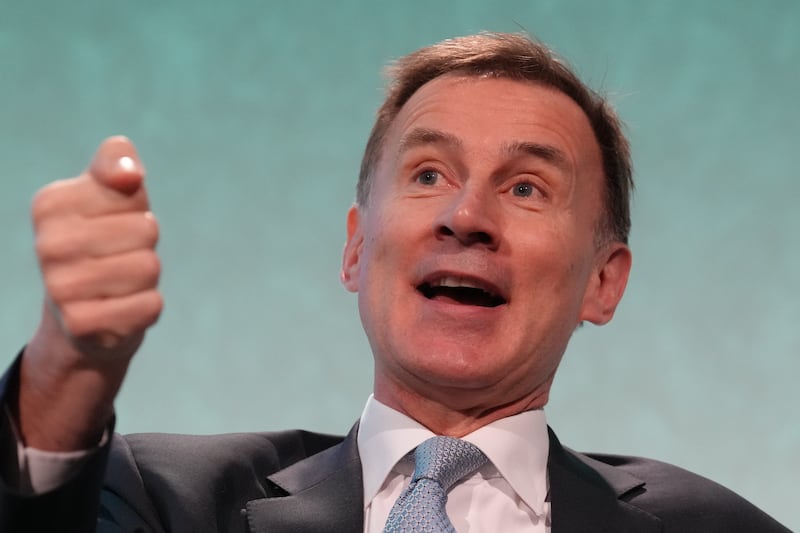A TOXIC combination of soaring prices and stagnating activity is causing genuine household pain across the UK after the economy barely kept its head above water in March, new figures show.
The Office for National Statistics (ONS) said gross domestic product (GDP) unexpectedly fell by 0.1 per cent last month after growth had stalled in February.
And with the situation likely to worsen in the months ahead, Labour is demanding an emergency budget to tackle the crisis, despite the government having dismissed the need for further urgent action.
The ONS data shows the impact of soaring inflation on consumer spending, with retail particularly hard hit.
It said the economy grew at its slowest pace for a year in the first quarter overall, with growth of 0.8 per cent, down from 1.3 per cent in the previous three months.
While the expansion means GDP is now 0.7 per cent above levels seen before the pandemic struck, the figures mark the calm before the storm as warnings grow over a recession in the UK due to the cost-of-living crisis.
The National Institute of Economic and Social Research (Niesr) think tank predicted on Wednesday that the UK will fall into recession, forecasting a GDP contraction in the third and fourth quarters.
“Times look set to get that bit tougher,” CBI chief economist Rain Newton-Smith said.
“Cost pressures and rising prices have tightened their grip, with both businesses and households feeling the pinch. The end result is a weaker economic outlook.
“It’s clear that the most vulnerable households and energy-intensive businesses may need further support, so the government should keep this under review.
“But the only way to build a resilient economy, one that can withstand price shocks, is a relentless focus on growing productivity and potential output. Business is the solution to both, so should be adequately supported to invest and grow,” she said.
The figures precede consumers in Britain and Northern Ireland being hit by higher taxes and bills at the start of April, and since then, consumers have cut back sharply on non-essential spending, which in turn has hit at the heart of retail businesses.
Meanwhile the National Institute of Economic and Social Research think tank said the protocol is helping, not hindering, growth and profitability in Northern Ireland because of its advantageous access to EU markets.
As part of its latest quarterly report on the UK’s economic outlook, the research group says available data shows that Northern Ireland’s economic output “has slightly outperformed the UK average.”
The report added: “This is partly an outcome of the Northern Irish protocol and its special status in the Brexit arrangements, including better trade and investment conditions as part of the EU’s single market and customs union.
“Closer links with the EU, through trade and also potentially labour mobility, have benefited Northern Ireland post-Brexit,” it said.








